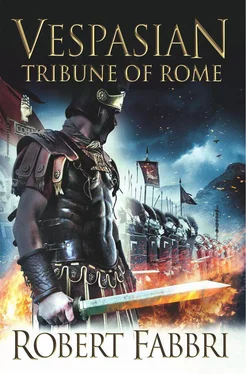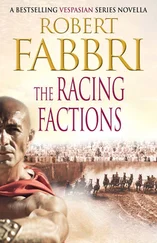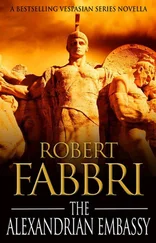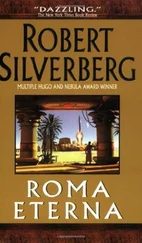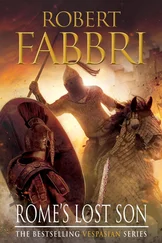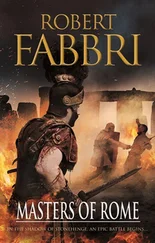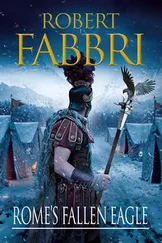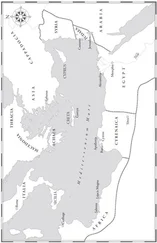Robert Fabbri - Tribune of Rome
Здесь есть возможность читать онлайн «Robert Fabbri - Tribune of Rome» весь текст электронной книги совершенно бесплатно (целиком полную версию без сокращений). В некоторых случаях можно слушать аудио, скачать через торрент в формате fb2 и присутствует краткое содержание. Жанр: Исторические приключения, на английском языке. Описание произведения, (предисловие) а так же отзывы посетителей доступны на портале библиотеки ЛибКат.
- Название:Tribune of Rome
- Автор:
- Жанр:
- Год:неизвестен
- ISBN:нет данных
- Рейтинг книги:3 / 5. Голосов: 1
-
Избранное:Добавить в избранное
- Отзывы:
-
Ваша оценка:
- 60
- 1
- 2
- 3
- 4
- 5
Tribune of Rome: краткое содержание, описание и аннотация
Предлагаем к чтению аннотацию, описание, краткое содержание или предисловие (зависит от того, что написал сам автор книги «Tribune of Rome»). Если вы не нашли необходимую информацию о книге — напишите в комментариях, мы постараемся отыскать её.
Tribune of Rome — читать онлайн бесплатно полную книгу (весь текст) целиком
Ниже представлен текст книги, разбитый по страницам. Система сохранения места последней прочитанной страницы, позволяет с удобством читать онлайн бесплатно книгу «Tribune of Rome», без необходимости каждый раз заново искать на чём Вы остановились. Поставьте закладку, и сможете в любой момент перейти на страницу, на которой закончили чтение.
Интервал:
Закладка:
Sabinus surveyed the terrain for a while, formulating a plan.
The brothers had left soon after dawn, taking Pallo, half a dozen other freedmen and two dozen mules. Pallo, who had his father to avenge, had selected the men to go with them. They were all freedmen from the estate who worked as overseers of slaves, or foremen, or as skilled artisans. The younger three, Hieron, Lykos and Simeon, had, like Pallo, been born into slavery. The others, Baseos, Ataphanes and Ludovicus, a huge ginger-haired German, had all been taken prisoner in border skirmishes and had, for one reason or another, been spared execution only to be sold into slavery. They all had one thing in common: Titus had manumitted them all after loyal service to his family and they were now Roman citizens bearing the Flavian name and were ready to die for it if necessary. Each of them carried ten javelins in a bundle across their mounts’ backs and, hanging from a belt on their right, a gladius. They all had hunting bows except Baseos, an old, squat, slant-eyed Scythian, and Ataphanes, a tall, fine-boned, middle-aged Parthian; they both carried short, recurved compound bows, the type favoured by the horsemen of the East.
‘So, lads, this is where we’ll leave our bait,’ Sabinus said finally. ‘Vespasian, you and Baseos take the mules down the slope and tether them individually between the end of the wood and the gully. Then pitch a tent and build a good fire; use damp stuff, if you can, to make a decent amount of smoke. We want people to know that you are there.
‘Pallo, you take Lykos and Simeon and skirt behind this hill and get yourselves into the gully a couple of miles to the north, and then work your way back down it to the far side of the field. Once you’re there get as close to the mules as you can, without revealing your position to any watchful eyes on the hills opposite. Me and the rest of the lads will make our way down to the edge of the wood and get as close to the mules as possible.
‘Vespasian, give us an hour to get in position, then you and Baseos ride back up over the hill, as if you’re off hunting, and then double back down through the wood and join us. Then we’ll wait. If we’re lucky and we attract our quarry we’ll let them get to the mules, then charge them. Pallo and his lads will cut off their retreat over the gully and we’ll have them trapped. Right, lads, let’s get to it.’ Sabinus, pleased with himself, looked around the men: they nodded their approval. It seemed a very workable plan.
Vespasian and Baseos made their way down through the wood, leading their horses. The mules had been securely tethered on long ropes, the tent pitched and a good smoky fire set. Ahead they could see the edge of the wood where Sabinus and his group were waiting, their horses tied to trees. Vespasian sat down next to his brother.
‘I saw Pallo’s boys enter the gully about two miles north. I hope they weren’t seen by anyone else,’ Vespasian whispered.
‘Doesn’t matter if they were,’ Sabinus grunted. ‘There’s nothing to connect them to the mules, they could be just another group of runaways out hunting.’
They settled down to wait. A hundred paces down the hill the mules were grazing peacefully. The day wore on and the fire began to die down until there was just a small wisp of smoke rising from it.
‘What happens when it gets dark?’ Vespasian asked, breaking a loaf of bread in two and offering half to Sabinus.
‘I’ll send a couple of the lads out to build up the fire and check the mules, but I’m hoping that we won’t have to wait that long,’ Sabinus replied, overcoming his natural antipathy to his brother and taking the proffered bread. ‘So, little brother, I shall teach you to be a legionary and you will teach me how to count mules or whatever it is that you do. You had better make it worth my while.’
‘It’s far more than mere stock-taking, Sabinus. The estates are huge; there’s a vast amount to administer. There are the freedmen who work for us: in return for a smallholding of their own they make farming tools in the smithy, shear the sheep, supervise the impregnating of the horse mares by the donkey stallions, look after the weaker new-born mules and lambs, oversee the slaves in the fields and so on.
‘Then there are the slaves themselves.’ Vespasian was warming to the theme despite the glazed look on his brother’s face. ‘They need to be put to work at different jobs, depending on the season: ploughing, pruning vines, harvesting wheat or grapes, threshing grain, pressing olive oil, treading grapes, making amphorae. It’s pointless having three hundred pints of wine or olive oil if you can’t store it; so it’s about thinking ahead, making sure that you’re using your work force efficiently and get the most out of each man at any time of the year.
‘Then everyone has to be fed, clothed and housed, which entails buying in a large variety of goods. They have to be bought in advance at the cheapest time of the year for each item, so you need to know the local market. Conversely our produce needs to be sold at the most advantageous time of year for us. Think ahead, Sabinus, always think ahead. Do you know what we should be selling at the moment?’
‘I’ve no idea, but I assume that you are going to tell me.’
Vespasian looked at his brother with a grin. ‘You work it out, and then tell me tomorrow at our first lesson.’
‘All right, you smug little shit, I shall, but it won’t be tomorrow, tomorrow it’s my turn.’ Sabinus looked at Vespasian malevolently. ‘And we’re starting with a route march, twenty miles in five hours, followed by sword drill.’
Vespasian rolled his eyes but didn’t retort. As he tore off some bread and popped it in his mouth he realised that, of the two of them, Sabinus was going to have much more scope for causing pain over the next couple of months than he had. He put that unpleasant thought from his mind and looked around, chewing on his bread.
The sun, well past its zenith, was now behind them, front-lighting the rocky slope on the other side of the gully. Vespasian peered towards it; as he did so a momentary sparkle caught his eye. He nudged Sabinus.
‘Over there, by that fallen tree,’ he whispered, pointing in the direction of the light. ‘I saw something glint.’
Sabinus followed the direction that his brother was pointing in; there was another flash. Through the heat-haze shimmer he could just make out a group of a dozen or so men leading their horses down a narrow track that wound through rocks and crags down towards the gully. Once they got to the bottom of the slope they quickly mounted up and started to follow the line of the gully a hundred paces south. Here it wasn’t so sheer and they managed to coax their horses down the bank, through the stream, and up the other side on to the Flavian pasture.
‘All right, lads, we’ve got company. We’ll wait until they’ve untethered most of the mules before we rush them. That way they’ll have their retreat impeded by loose animals. I want as much noise as you can make when we charge. Those of you who can shoot a bow from a moving horse do so, the rest wait until we’re in javelin range, then let fly, and mind those mules.’
‘Don’t worry about them, Sabinus,’ Pallo said darkly. ‘I won’t be wasting any javelins on the mules.’
The others grinned and went to retrieve their horses.
‘You stay close to either me or Pallo, little brother,’ Sabinus growled as they mounted up as quietly as possible. ‘Father wants you back in one piece. No heroics. It makes no difference to us whether we get the bastards dead or alive.’
The idea that he personally might have to kill a man came as a shock to Vespasian; dealing out summary justice to brigands had not featured in his life thus far – a life that had been relatively sheltered – but he determined to acquit himself well as he pulled his horse up next to Sabinus; he would not give his brother cause to think worse of him than he already did. He gripped his mount hard with his thighs and calves and reached behind him to slip five of the light javelins from his supply. He kept four in his left hand, which also held the reins, the fifth he held in his right. He slipped his forefinger through the leather loop, halfway down the shaft, which acted as a sling on launch, greatly enhancing range and velocity. He was as ready as he would ever be. He glanced at the others, who were also checking their gear but with an air of studied nonchalance; they had all been through this before and he felt very much the novice. His mouth was dry.
Читать дальшеИнтервал:
Закладка:
Похожие книги на «Tribune of Rome»
Представляем Вашему вниманию похожие книги на «Tribune of Rome» списком для выбора. Мы отобрали схожую по названию и смыслу литературу в надежде предоставить читателям больше вариантов отыскать новые, интересные, ещё непрочитанные произведения.
Обсуждение, отзывы о книге «Tribune of Rome» и просто собственные мнения читателей. Оставьте ваши комментарии, напишите, что Вы думаете о произведении, его смысле или главных героях. Укажите что конкретно понравилось, а что нет, и почему Вы так считаете.
